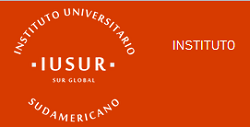Compared issues in Teacher Training
DOI:
https://doi.org/10.25087/resur11a6Keywords:
Comparative Education, Teacher Training, Case Studies, Teaching Innovation, Virtual TeachingAbstract
The purpose of this work is to carry out a comparative study on Teacher Training in the face of the health emergency due to COVID 19 in two public institutions of Higher Education in Mexico and Spain. The foundation of this work is found in teacher training models, virtual teaching and teaching innovation. It is necessary to innovate to respond to the unforeseen situation of total virtuality. It is important to reflect on the response in both contexts, because, according to Bray and Adamson (2007), the adoption of the educational institution as a unit of analysis requires that we focus on the institutional culture that is different in both contexts. In the case of Spain it is a University and in the case of Mexico it is an institution of Higher Education but it is not a University. We will focus on the narratives about the students' experience in confinement, about the teaching methodology that had to be changed and the situation experienced by the teachers. The research method used has been a comparative case study, focused on the development of two subjects, one from Mexico and the other from Spain. As Stake (1999) indicates, we intend to achieve an understanding of the changes produced in the teaching of both cases. It is a qualitative research that aims to find elements for improvement by delving into two different contexts. We have found that it is possible to distinguish a series of stages in the response to an unforeseen break in face-to-face teaching, ranging from a situation of uncertainty and concern for the health of students and teachers to the formal modification made in the teaching guides, ending with some difficulties encountered in evaluating student performance. It is important to draw conclusions about the pedagogical aspects that have transformed teaching-learning and that may be useful in similar situations.
Downloads
References
Appel, M. (2005). La entrevista autobiográfica narrativa: Fundamentos teóricos y la praxis del análisis mostrada a partir del estudio de caso sobre el cambio de los Otomíes en México. Recuperado de: http://www.qualitativeresearch.net/index.php/fqs/article/view/465/995.
Bolívar, A. (2002). El estudio de caso como informe biográfico-narrativo. Arbor, 171(675),559–578. https://doi.org/10.3989/arbor.2002.i675.1046.
Bolívar A., Domingo, J. y Fernández Cruz, M. (2001). La investigación biográfico-narrativa en educación. Enfoque y metodología. Madrid, España: La Muralla.
Caballero, A., Manso, J., Matarranz, Mª. y Valle, J. M. (2016). Revista Latinoamericana de Educación Comparada. RELEC. Nº 9. pp 39-56.
Connelly, M. y Clandinin, J. (1995). Relatos de experiencia e investigación narrativa. En J. Larrosa y otros, Déjame que te cuente. Ensayos sobre narrativa y educación. Barcelona, España: Laertes.
De Vincenzi, A. (2020). Del aula presencial al aula virtual universitaria en contexto depandemia de COVID-19. Debate Universitario, Vol 8, No 16 (2020).
Díaz-Quiñones J, Iglesias-León M, Valdés-Gómez M. (2020). La tutoría a distancia: acciones del tutor en la Estrategia de Formación Doctoral en tiempos de COVID 19. Medisur, 18(3). Recuperado de: http://medisur.sld.cu/index.php/medisur/article/view/4678.
Flick, U. (2004). Introducción a la investigación cualitativa. Madrid, Epaña: Morata.
Huchim Aguilar, D. & Reyes Chávez, R. (2013). La investigación biográfico-narrativa, una alternativa para el estudio de los docentes. Revista Electrónica "Actualidades Investigativas en Educación", 13(3),1-27. Recuperado de: https://www.redalyc.org/articulo.oa?id=447/44729878019.
Pedró, F. (2020). COVID-19 y Educación Superior en América Latina y el Caribe: efectos, impactos y recomendaciones políticas. Madrid, España: Fundación Carolina.
Raventós, F. (1983). El fundamento de la metodología comparativa en educación. Educar, 3, 61-75.
Reimers, F. & Schleicher, A. (2020). Un marco para guiar una respuesta educativa a la pandemia del 2020 del COVID-19. Madrid, España: OCDE/OEI.
Stake, R. E. (1998, 1999). Investigación con estudio de casos. Madrid, España: Morata.
Velloso, A. y Pedró, F. (1991). Manual de educación comparada. Vol. 1 Conceptos básicos. Barcelona: PPU.










